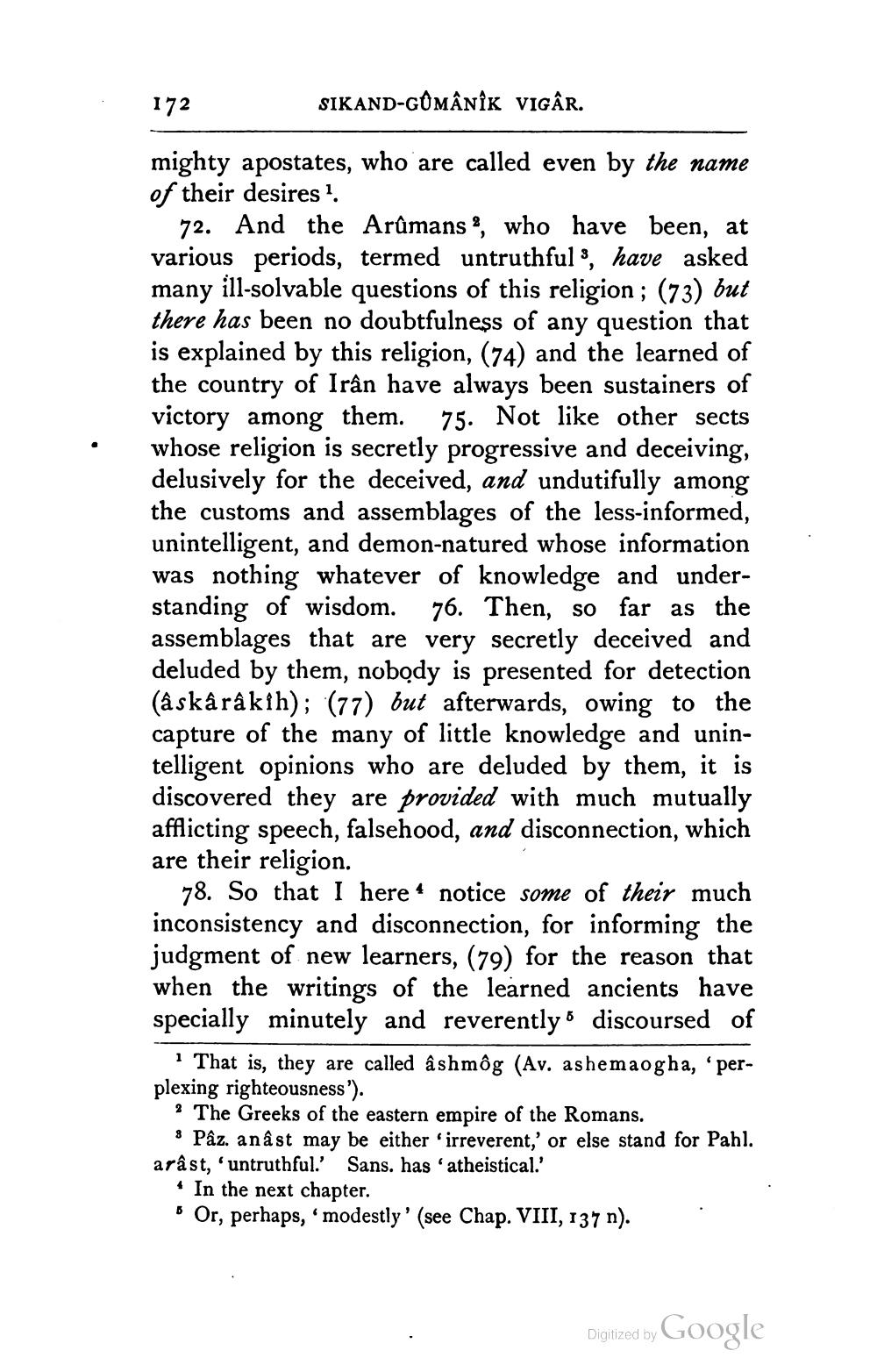________________
172
SIKAND-GOMÂNİK VIGÂR.
mighty apostates, who are called even by the name of their desires ?
72. And the Arûmans, who have been, at various periods, termed untruthful", have asked many ill-solvable questions of this religion ; (73) but there has been no doubtfulness of any question that is explained by this religion, (74) and the learned of the country of Irân have always been sustainers of victory among them. 75. Not like other sects whose religion is secretly progressive and deceiving, delusively for the deceived, and undutifully among the customs and assemblages of the less-informed, unintelligent, and demon-natured whose information was nothing whatever of knowledge and understanding of wisdom. 76. Then, so far as the assemblages that are very secretly deceived and deluded by them, nobody is presented for detection (âskârâkih); (77) but afterwards, owing to the capture of the many of little knowledge and unintelligent opinions who are deluded by them, it is discovered they are provided with much mutually afflicting speech, falsehood, and disconnection, which are their religion.
78. So that I here 4 notice some of their much inconsistency and disconnection, for informing the judgment of new learners, (79) for the reason that when the writings of the learned ancients have specially minutely and reverentlyó discoursed of
That is, they are called âshmôg (Av. ashemaogha, 'perplexing righteousness').
2 The Greeks of the eastern empire of the Romans.
8 Paz. anâst may be either irreverent,' or else stand for Pahl. arâst, untruthful.' Sans. has 'atheistical.' • In the next chapter. Or, perhaps, modestly' (see Chap. VIII, 137 n).
Digitized by Google




